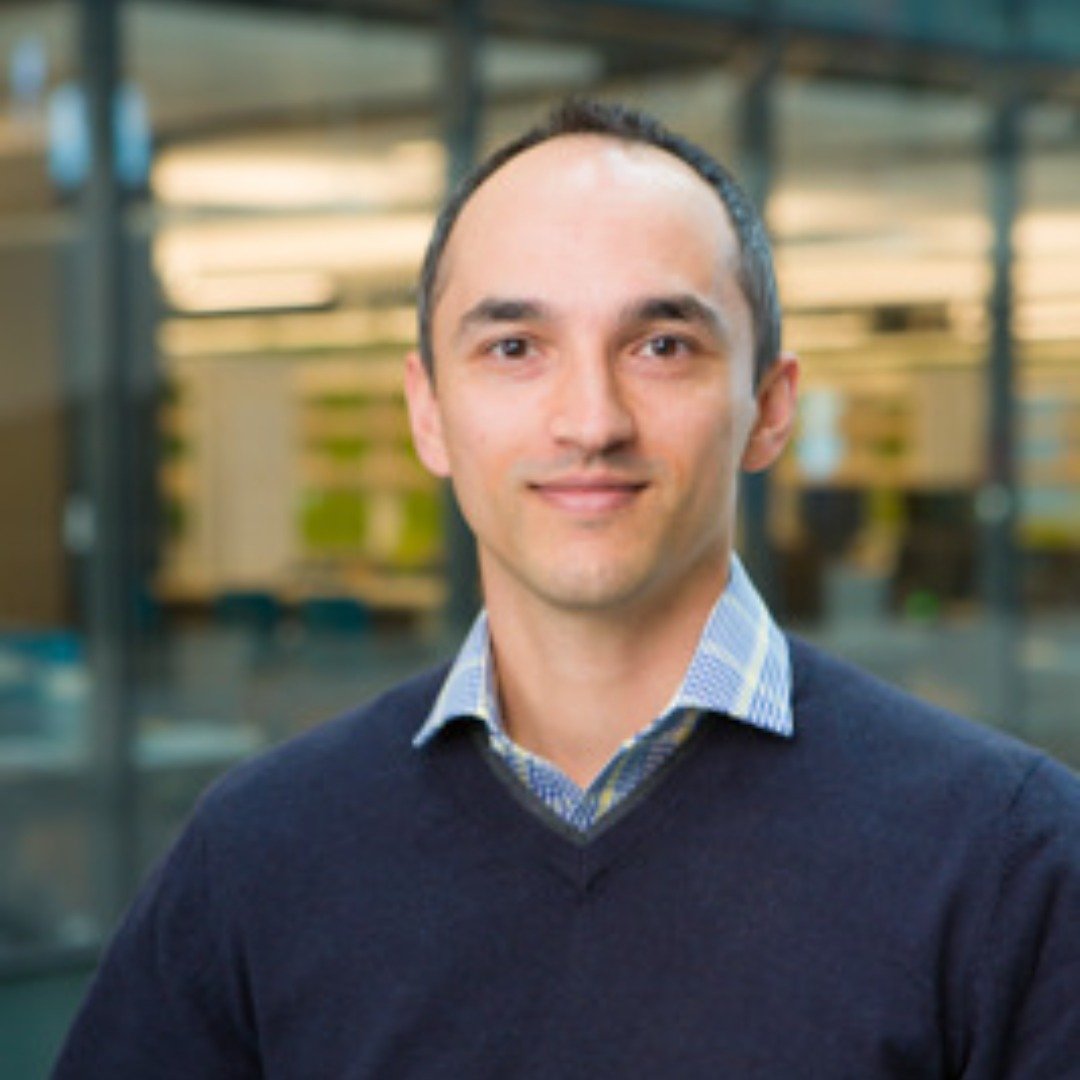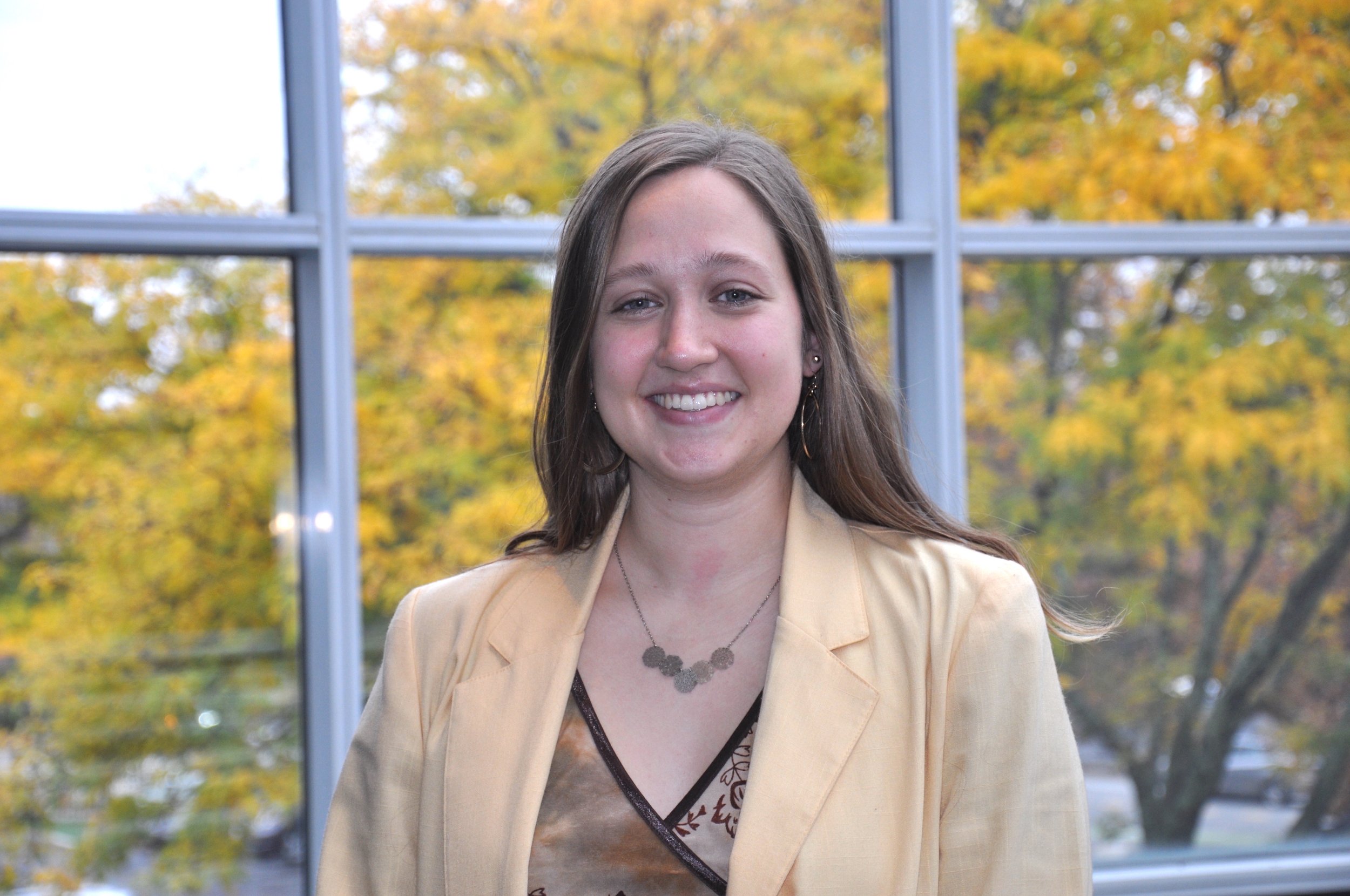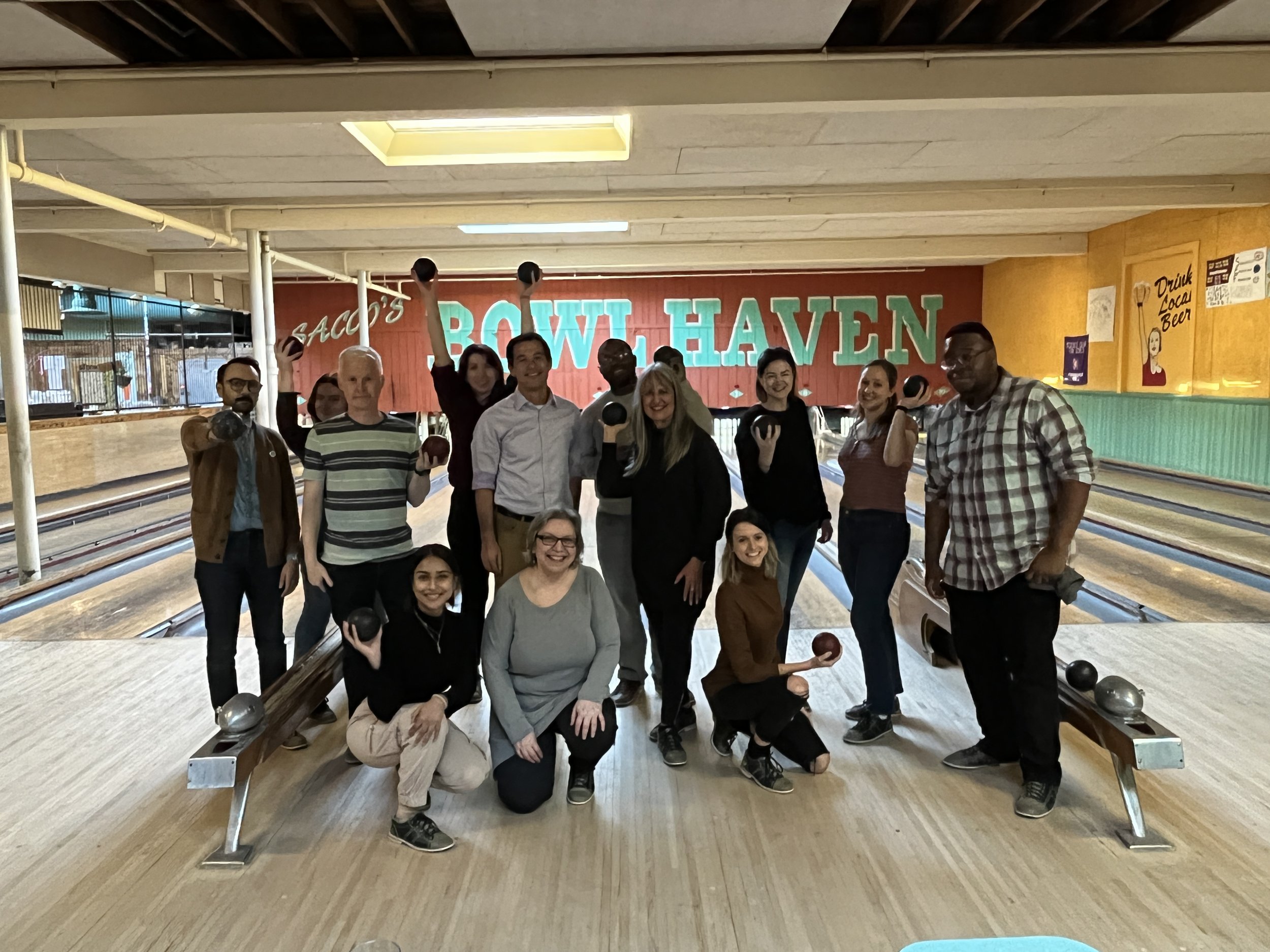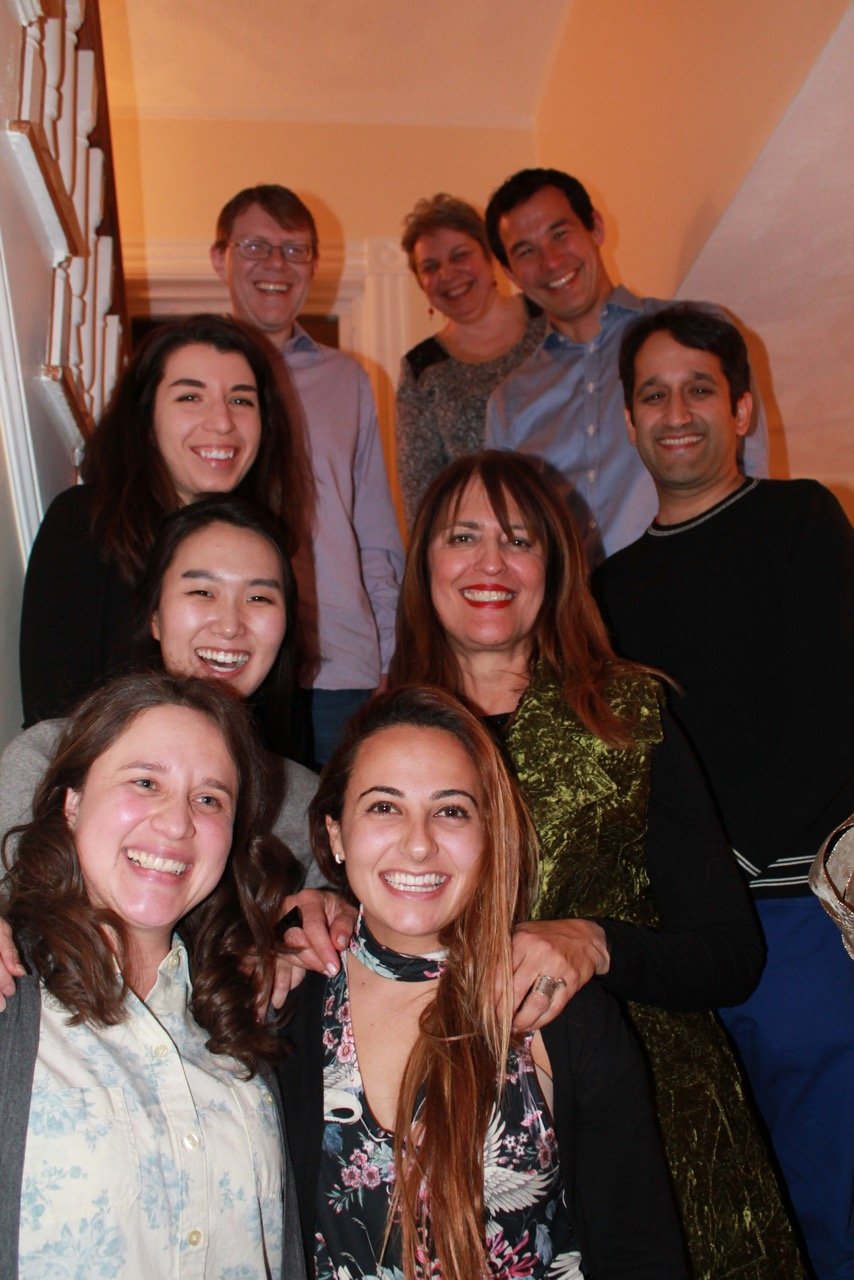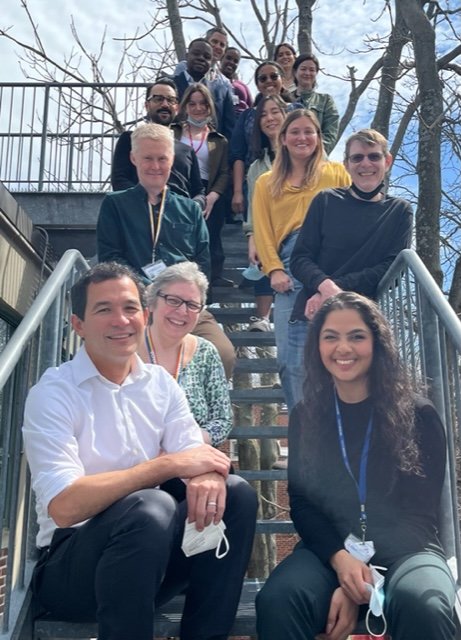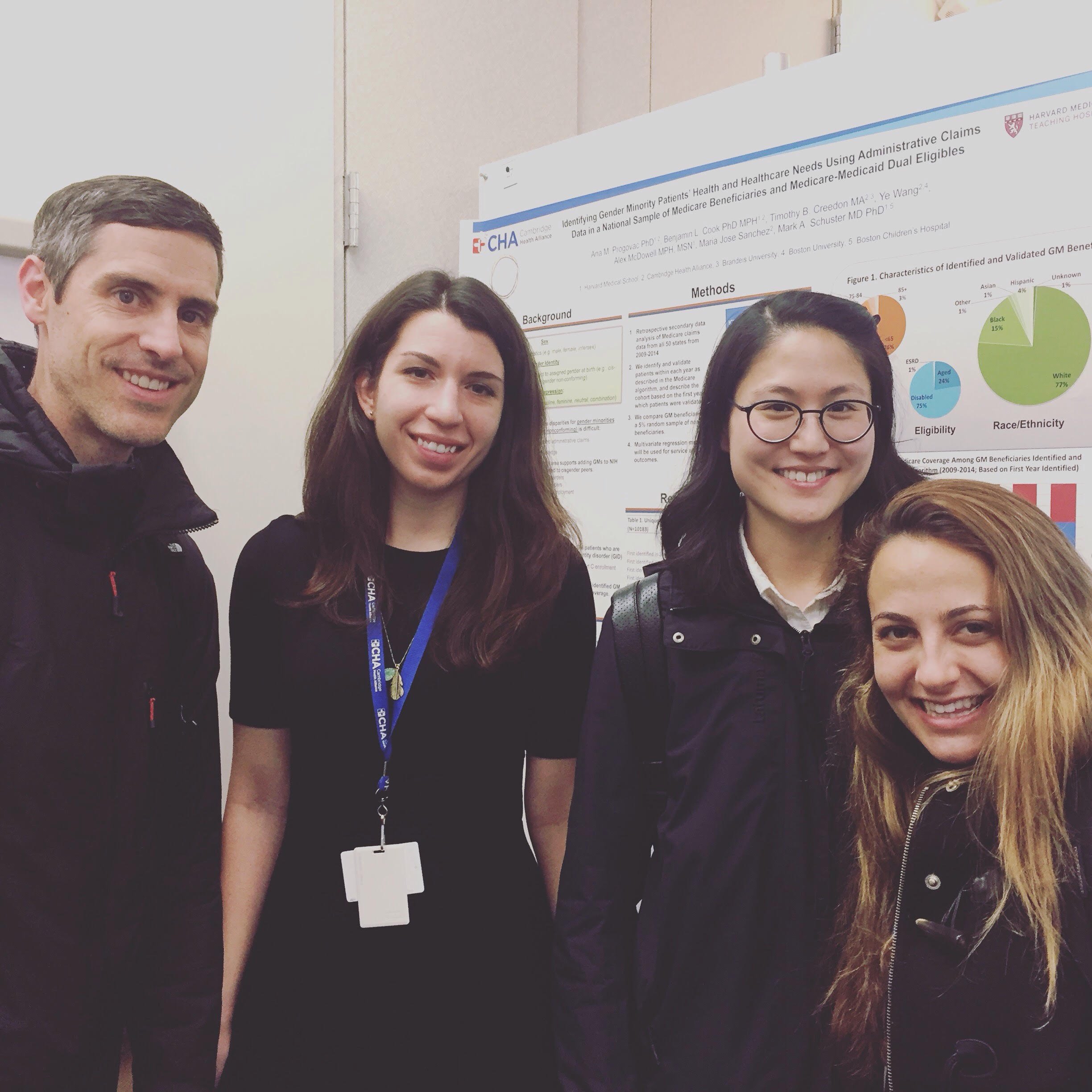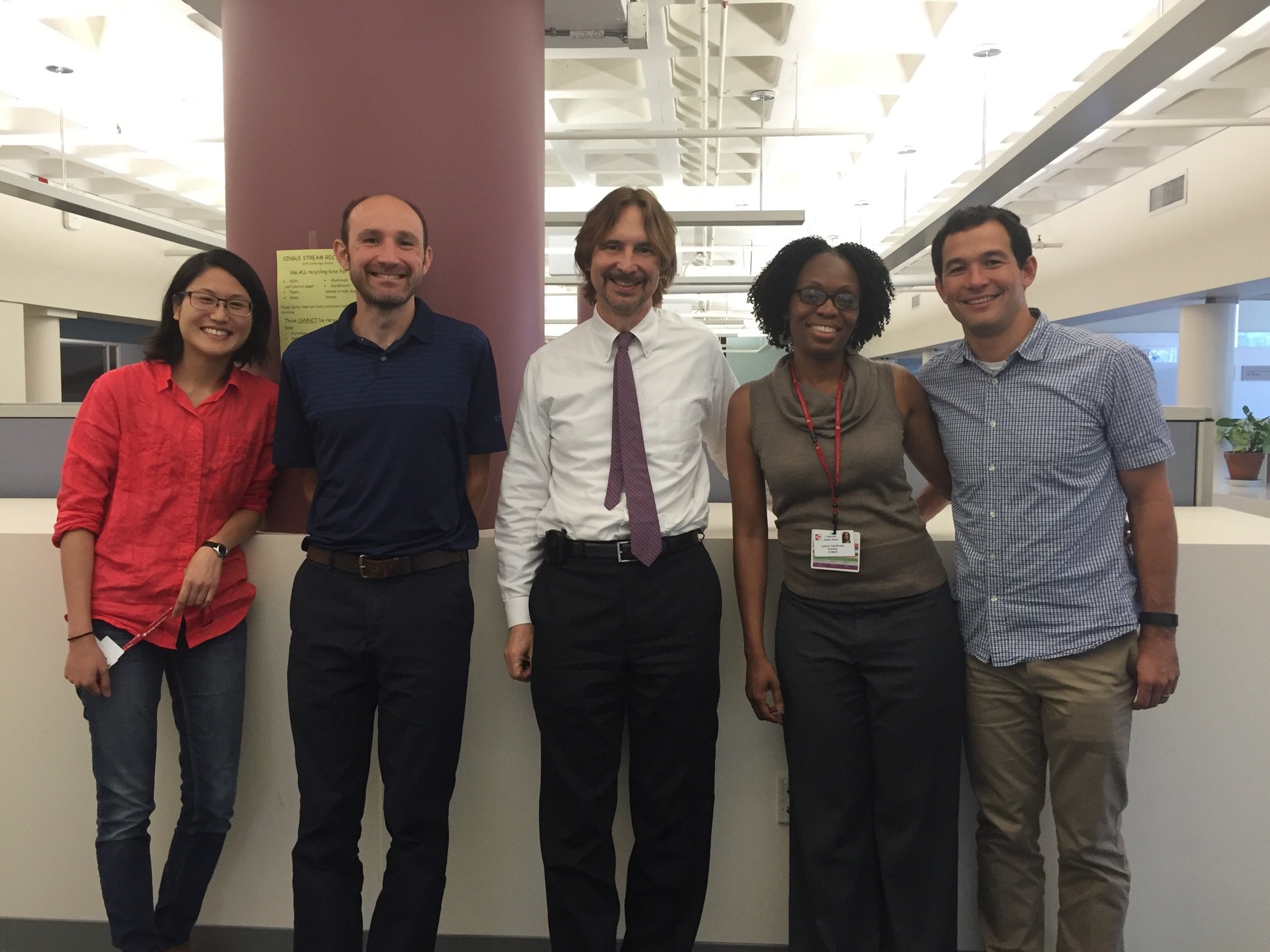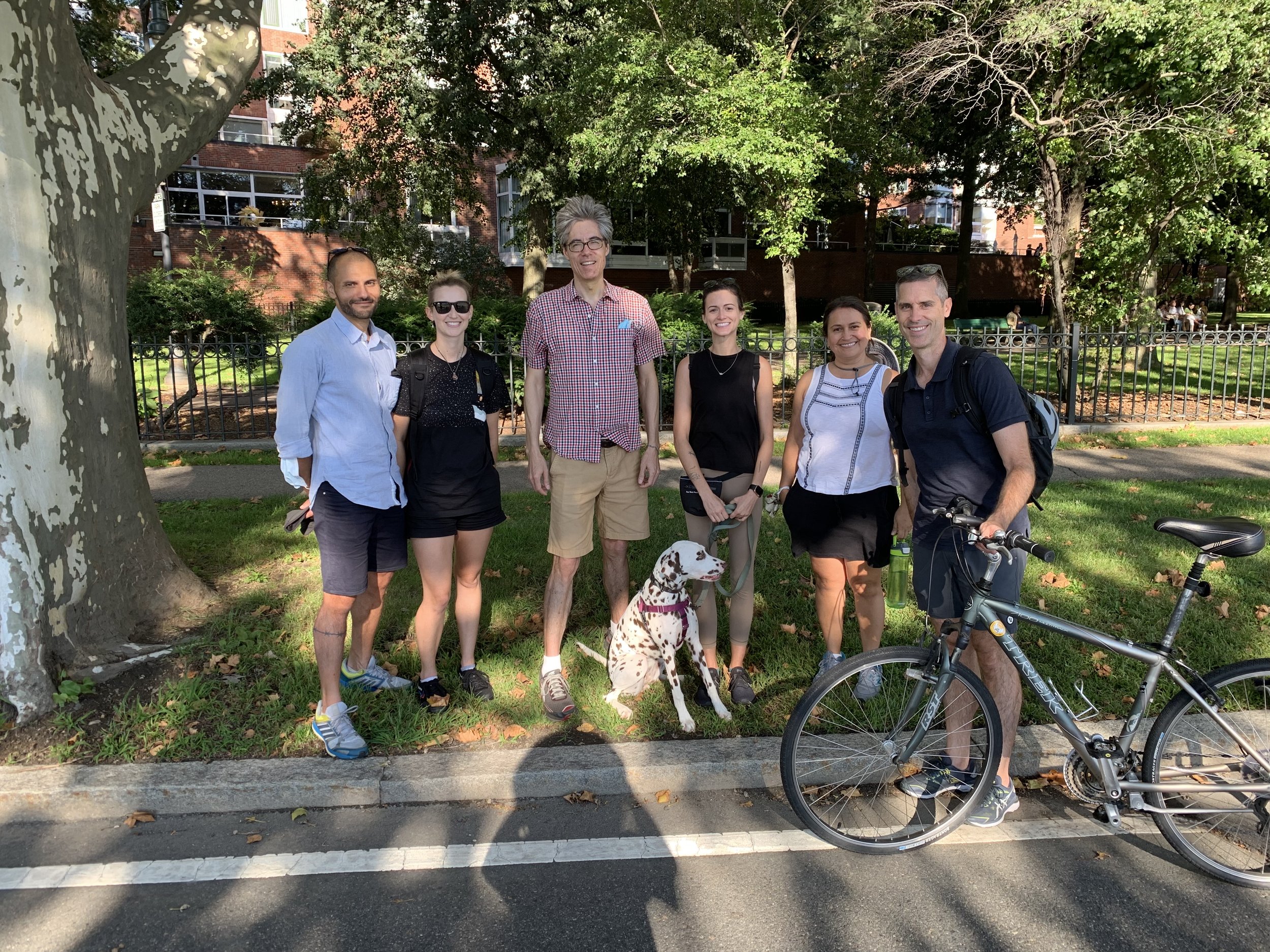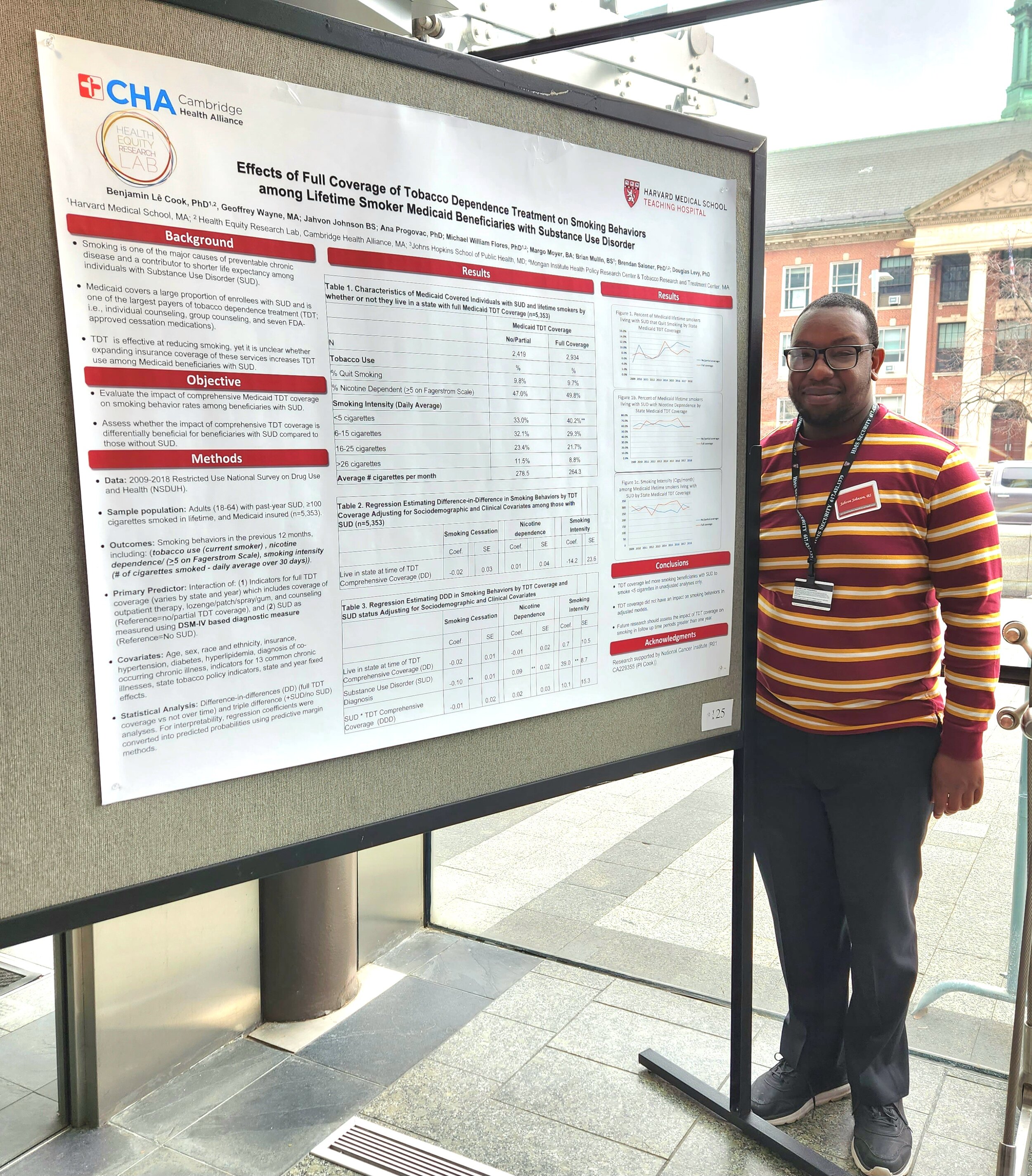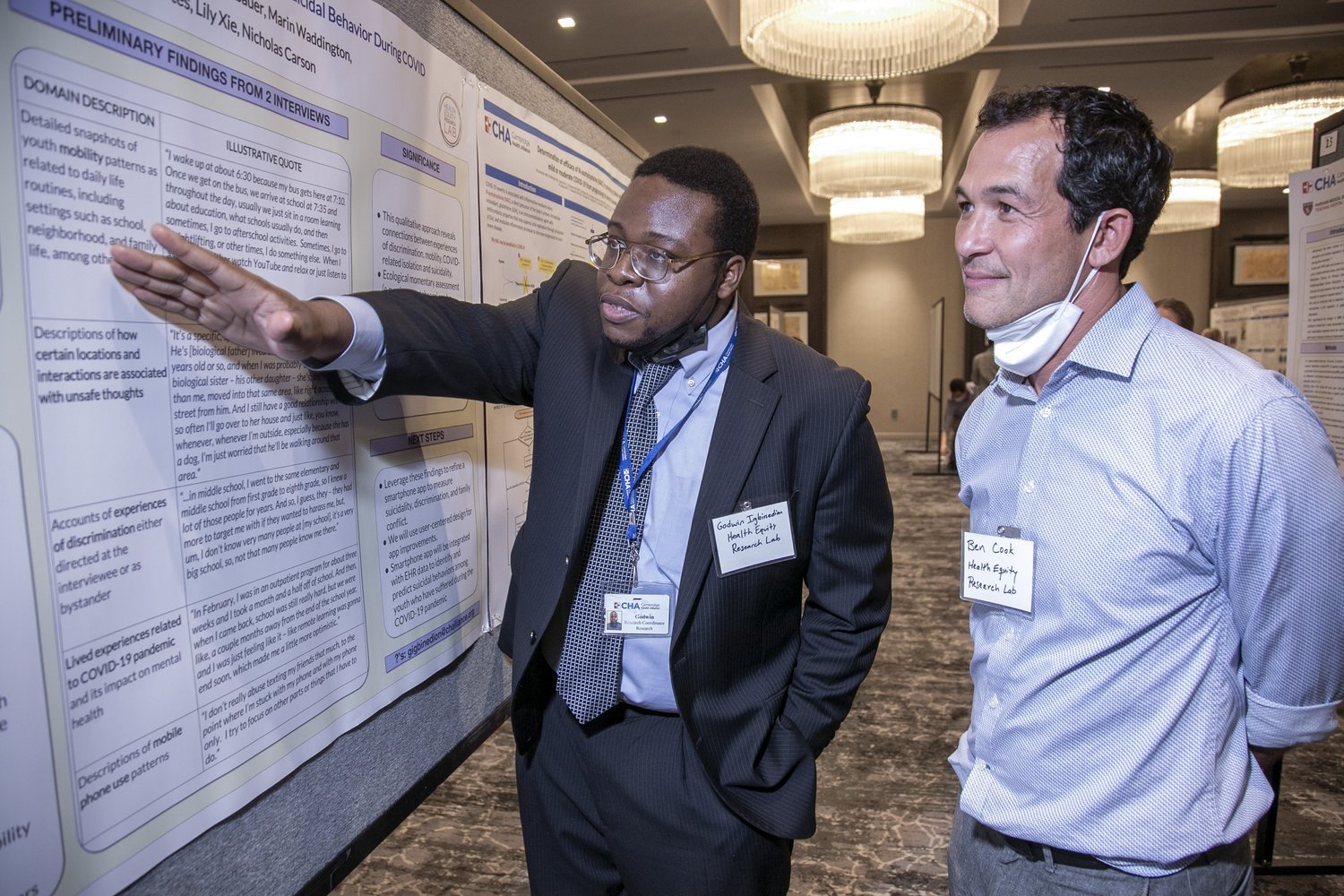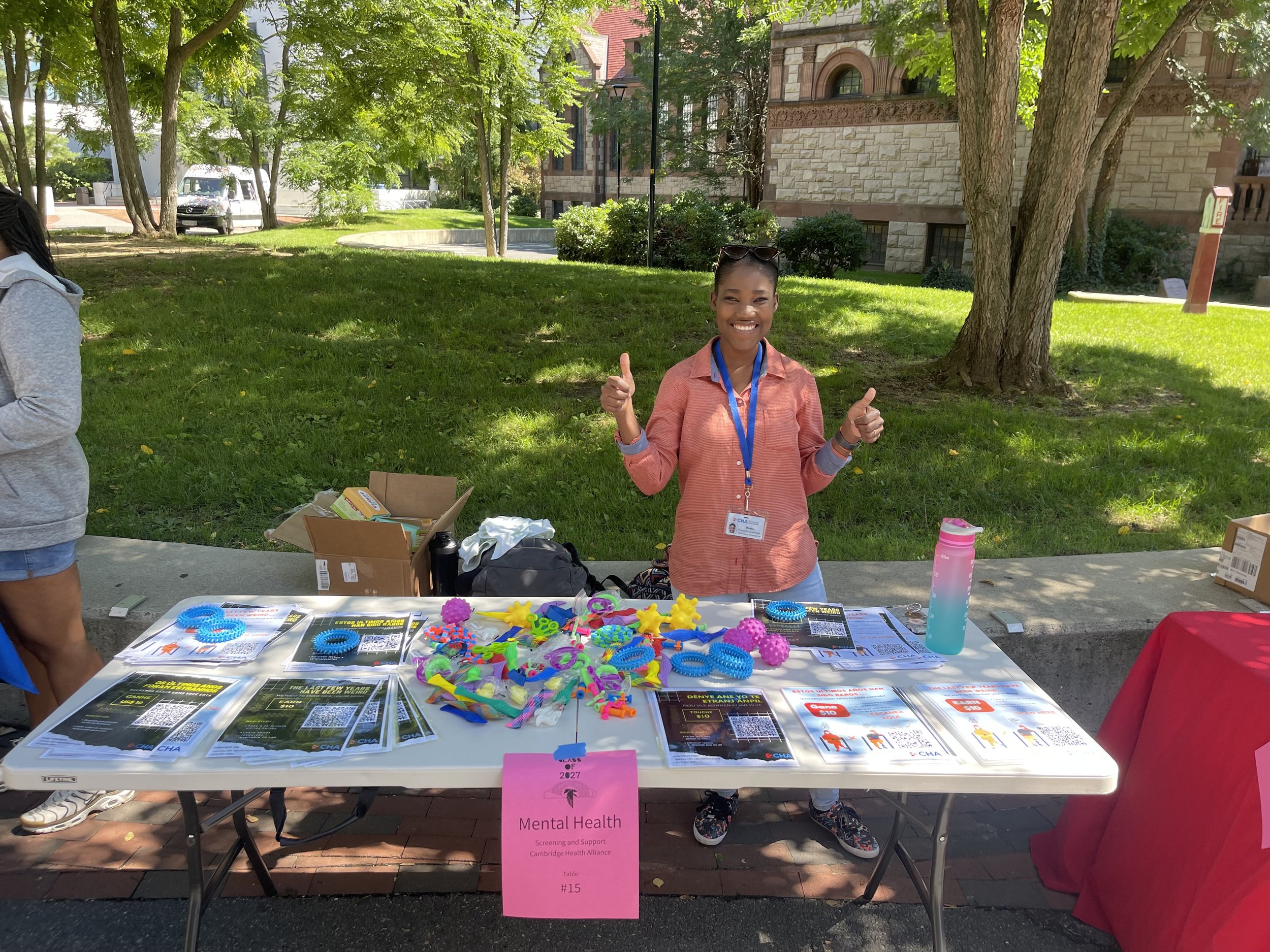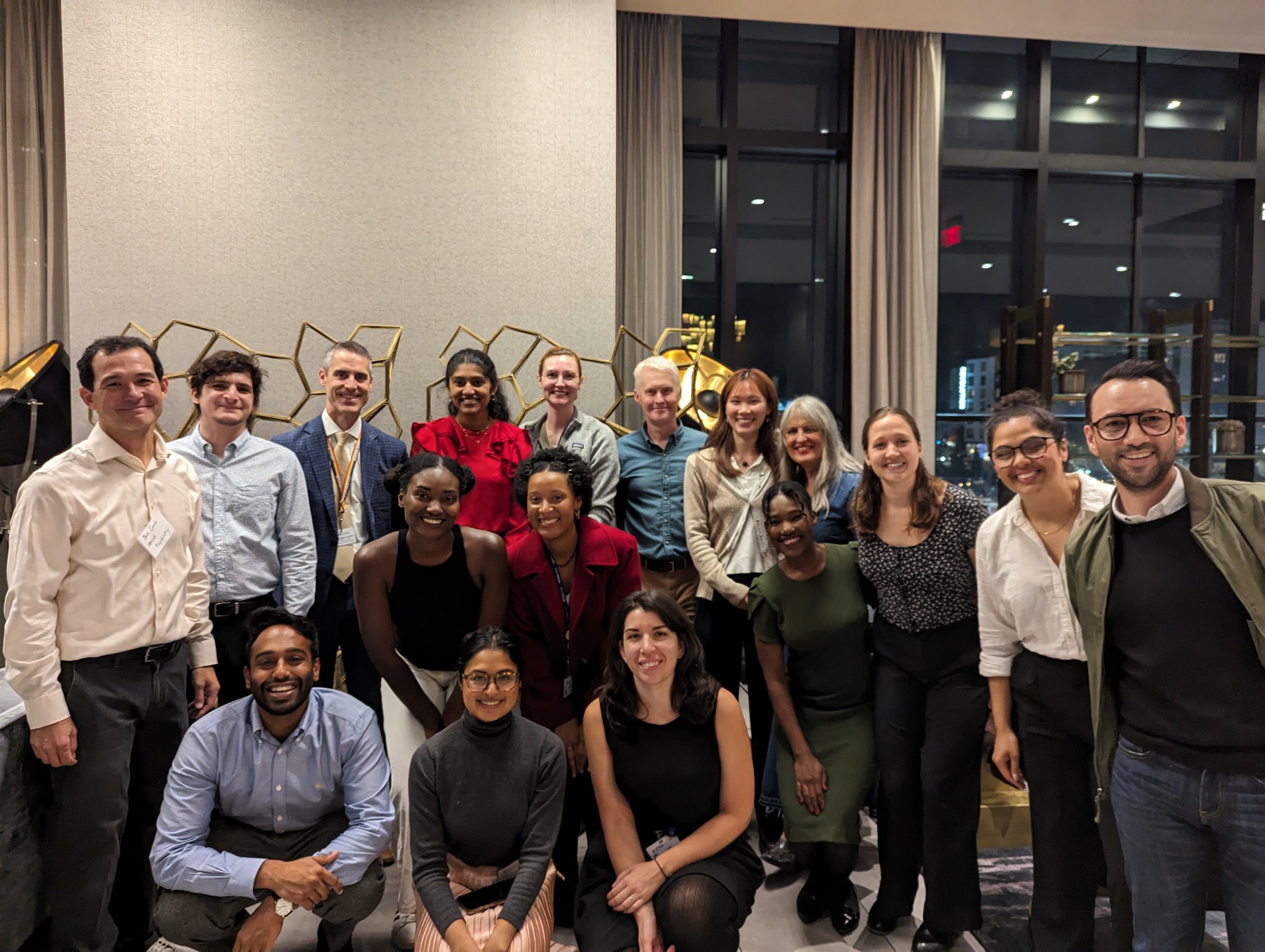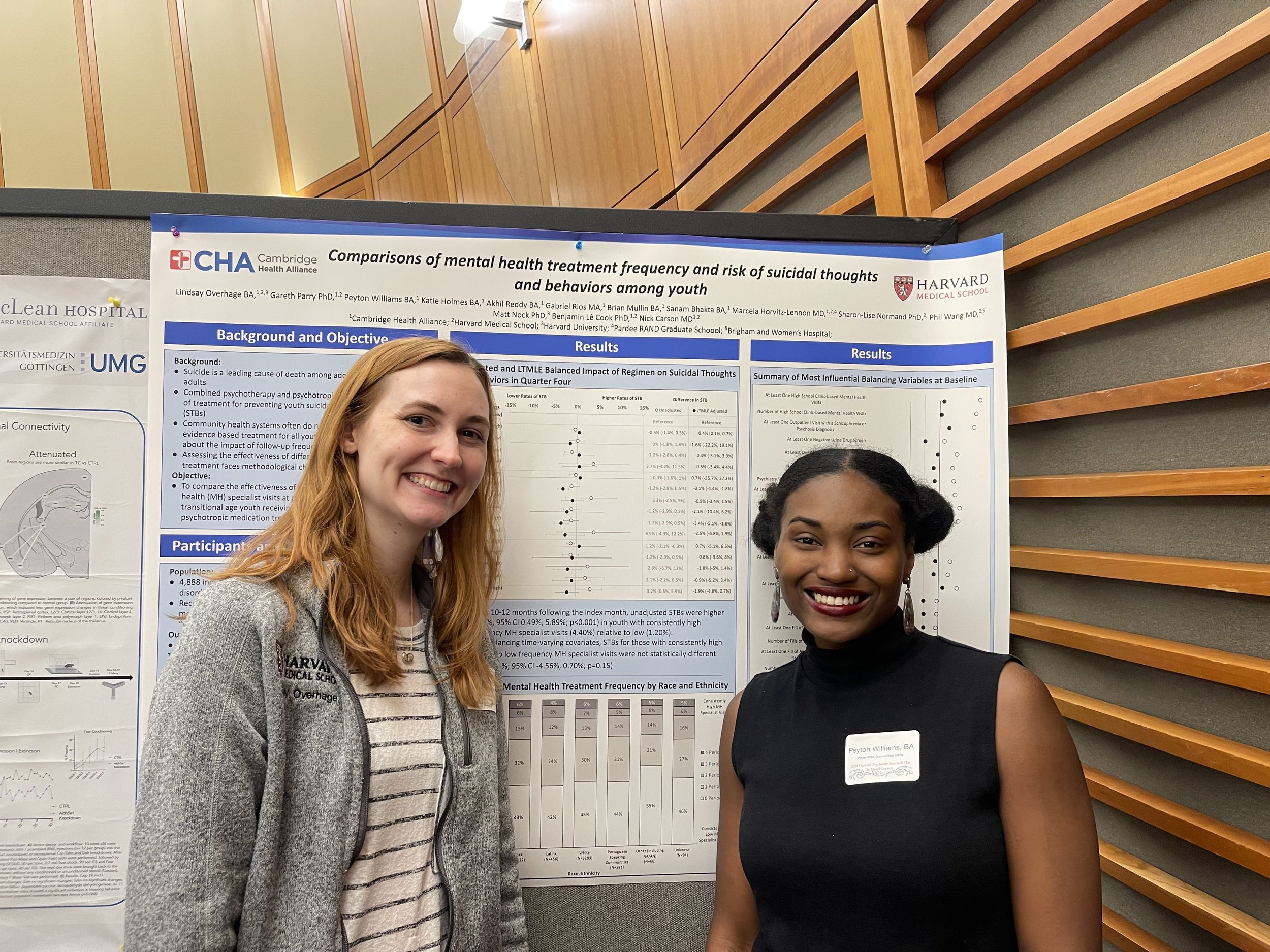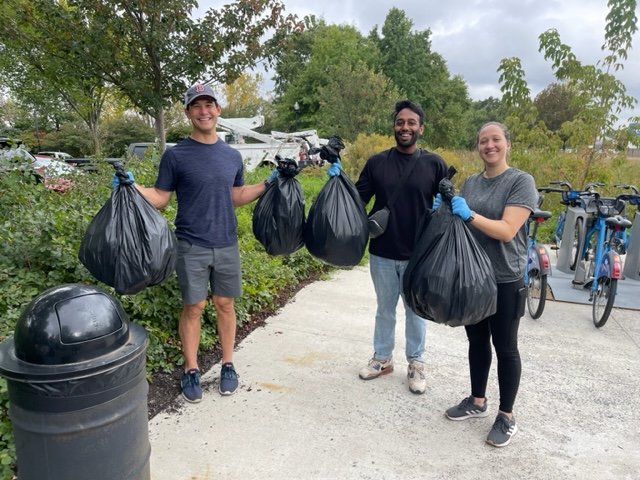Health Equity Research Lab Investigators
Albert Lo, PhD
-
Albert Lo, PhD (he/him) is a child psychologist at Cambridge Health Alliance. He has research and clinical interests in the mental health and developmental needs of youth and families from marginalized backgrounds. Albert's past and ongoing research work has focused on parenting processes and youth adjustment in the areas of immigration and adoption. He received his doctorate in clinical psychology from the University of Massachusetts Amherst. He completed his clinical internship at the Virginia Treatment Center for Children/Virginia Commonwealth University Medical Center and his fellowship at the Center for Multicultural Training in Psychology at the Chobanian & Avedisian School of Medicine.cription text goes here
Ana M. Progovac, PhD
-
Ana Progovac, PhD (she/her) is an Assistant Professor at Harvard Medical School and Senior Scientist at the Health Equity Research Lab. Her research focuses on improving the quality of mental health care in the U.S., with a focus on reducing disparities for underserved populations. Dr. Progovac’s projects use a variety of research methods, including quantitative, qualitative, mixed-methods research, implementation research methods, and community-engaged research. She is interested in approaches to improve mental health that span across systems, and therefore enjoys collaborating with students, community members, other researchers, clinicians, administrators, and policy advocates. Her current research focuses on measuring and reducing mental health care disparities for gender minority individuals in the U.S. She is also conducting a mixed-methods analysis of an implementation of a behavioral health home for patients with serious mental illness.
Benjamin Lê Cook, PhD, MPH
-
Benjamin Lê Cook, PhD, MPH (he/him) is Director of the Health Equity Research Lab, Director of Research, Department of Psychiatry at Cambridge Health Alliance, and Professor, Department of Psychiatry at Harvard Medical School. His research interests are in improving methods for measuring disparities, and applying these methods to understanding the mechanisms underlying mental health and substance abuse treatment disparities, the association between acculturation and mental health, and geographic differences in mental health service use disparities. He received a Ph.D. in Health Policy at Harvard University concentrating in Evaluative Science and Statistics, an MPH from UNC-Chapel Hill in the Department of Health Behavior and Health Education, and a BA in psychology from Swarthmore College.
Dharma Cortés, PhD
-
Dharma Cortés, PhD (she/her/ella) received her Bachelor’s degree in Psychology and a Master’s degree from the University of Puerto Rico, a Doctorate degree in Sociology from Fordham University, and completed her post-doctoral training in Medical Anthropology at Harvard Medical School’s Department of Social Medicine. For more than twenty years Dr. Cortés has been conducting community-based research with Latinos in the U.S., focusing on acculturation, health, mental health, and access to healthcare. She has contributed as principal investigator, co-investigator and consultant to studies funded by the NIH, the Centers for Medicare and Medicaid Services, and the Robert Wood-Johnson Foundation.
Gareth Parry, PhD
-
Gareth Parry (he/him) has a background in health services research and biostatistics, focusing on the evaluation of improvement & implementation initiatives, and quality & safety measurement. He was recently Senior Scientist at the Institute for Healthcare Improvement (IHI), where he led the evaluation department, developing a novel mixed-method rapid-cycle evaluation approach for implementation and improvement projects. At IHI, he also developed and applied patient safety measurement tools in adult and pediatric care. His early career in the United Kingdom (UK) focused on developing and applying the Clinical Risk Index for Babies (CRIB) Score, used internationally in clinical and service delivery research. He undertook similar work in pediatric and adult intensive care, becoming the founding director of the UK pediatric Intensive Care Audit Network (PICANet).
James Barrett, PhD
-
James Barrett, PhD (he/him) is the Director of the Clinical Support Unit at the Cambridge Police Department and an Assistant Professor of Psychology in the Department of Psychiatry (part-time) at Harvard Medical School. He is an Associate Clinical Researcher at the Health Equity Research Lab at the Cambridge Health Alliance where he received the Academic Council Award for Excellence. Dr. Barrett is the author and developer of the Fight Navigator curriculum under the Eleanor and Miles Shore Fellowship from the Harvard Medical School to address retaliatory violence in youth. He is a member of the American Psychological Association, Association of Threat Assessment Professionals (ATAP) and the FBI’s Mass Bay Threat Assessment Team. Dr. Barrett is National Institute of Justice LEADS Scholar and has presented at numerous national conferences on juvenile justice and diversion, gang violence, juvenile safety assessment, preventing retaliatory violence, and police-mental health partnerships. He has contributed to national meetings convened by SAMHSA, the MacArthur Foundation and the International Association of Chiefs of Police.
Marcela Horvitz-Lennon, MD
-
Marcela Horvitz-Lennon, MD (she/her) is a senior physician scientist at the RAND Corporation and a faculty member of the Pardee RAND Graduate School. She is an Associate Professor of Psychiatry at Harvard Medical School and a practicing psychiatrist at Cambridge Health Alliance. Her research focuses on the quality and value of health care received by adults with serious mental illnesses. Much of her work has been public sector-related. She has conducted research on racial/ethnic and geographic disparities in care; Medicaid and federal health care policy; utilization patterns and safety of antipsychotic drugs; underuse and overuse of mental health interventions; integration of physical and mental healthcare; diffusion of mental health innovations; and global mental health. Through her clinical position, Marcela is actively involved in medical student education and resident training. She has also mentored pre-doctoral students and served as member/director of Ph.D. dissertation committees. She earned her M.D. in Santiago, Chile, and a Master's degree in public health at Johns Hopkins University School of Public Health. She completed her psychiatric residency training at the University of Maryland Medical School, and a fellowship in Community Psychiatry at Johns Hopkins Medical School.
Michael Flores, PhD, MPH
-
Michael Flores, PhD, MPH (he/him) is a graduate of the doctoral program in Health Services Research at the Brown University School of Public Health. His dissertation evaluated the impact of access and utilization of health services among Medicaid beneficiaries with serious mental illness of Rhode Island’s Medicaid Health Home through the use of quasi-experimental methods and longitudinal administrative claims data. His research interests include access and utilization of health services by populations with mental illness, healthcare integration, implementation science, social determinants of health, racial/ethnic disparities, community-based interventions, and patient-provider communication. Dr. Flores received his BA in Spanish Literature and Latin American Iberian Studies from the University of California, Santa Barbara, and an MPH in Health Policy from Fresno State. He is fluent in English and Spanish.
Nicholas Carson, MD, FRCPC
-
Nicholas Carson, MD, DFAACAP (he/him) is a community mental health leader, clinician, and researcher with a passion for improving mental healthcare for disadvantaged families. He is an Assistant Professor in Psychiatry at Harvard Medical School and a Clinical Research Associate at the Health Equity Research Lab. He is also the Division Chief for Child & Adolescent Psychiatry at the Cambridge Health Alliance where he leads services in inpatient, outpatient, school-based, and integrated care settings. As a health services researcher, he studies inequities in the quality of mental health treatment for disadvantaged families using a variety of electronic health record, national survey, and healthcare claims data. He has pioneered machine learning approaches in adolescent suicide research and is committed to studying and redressing the impact of racism, trauma, and other social determinants on the wellbeing of families. All of the above experiences inform his direct clinical care of youth with mental health difficulties and his supervision of the wonderful trainees and staff at the Cambridge Health Alliance. Dr. Carson received his BA and MD from McGill University, completed his Psychiatry residency at the Hospital of the University of Pennsylvania, and completed his fellowship training in Child and Adolescent Psychiatry the Cambridge Health Alliance/Harvard Medical School.
Rajen Aldis, MD
-
Rajendra Aldis, MD is the Associate Medical Director of Research Informatics at Cambridge Health Alliance (CHA) and an Instructor in Psychiatry at Harvard Medical School. He also provides direct patient care as a board certified psychiatrist in CHA’s Primary Care Integrated Behavioral Health Program. In the CHA IT department, he has a leadership role in developing CHA’s research informatics and predictive analytics capacity. Dr. Aldis’ research interests include the application of machine learning and electronic health record data to assess and mitigate health disparities. Dr. Aldis received his MD from Dartmouth Medical School and a Master of Science in Computer Science from Northeastern University. He completed residency in adult psychiatry at Cambridge Health Alliance/Harvard Medical School, and completed his fellowship training in global mental health delivery at Harvard Medical School/Partners in Health.
Valeria A. Chambers, Ed.M., CAS, CPS
-
Valeria Chambers (she/her) is founder of Black Voices: Pathways4Recovery, a state-wide advocacy and leadership support network for Blacks and African Americans. She has used her lived experience as a person in recovery as a Certified Peer Specialist trainer and facilitator in the mental health peer support arena for the past 18 years. In addition to her work at the Lab, she is a Peer Consultant at the Center of Excellence for Psychosocial and Systemic Research, MGH and an Educational Consultant & Trainer for MA Bureau of Substance Abuse Services. Valeria continually looks for ways to include and amplify voices that often go unheard due to institutional and systemic racism and oppression. She is a 2020/2021 Fellow at the CHA Center for Mindfulness and Compassion, where she is researching ways to help make mindfulness practices more culturally relevant for Blacks in recovery who have been unimpressed so far, by their experiences of it, while also looking at ways people may have already come up with their own practices. Her goal is to help increase access to trauma-informed, culturally responsive mental health connections for Black Indigenous People of Color (BIPOC) via peer support, advocacy, and community-based participatory action research to inform mental health services.
Health Equity Research Lab Staff
Akhil Reddy
-
Akhil Reddy (he/him) earned his BS in Interdisciplinary Studies (Biology, Computer Science, and Business) from the University of Pittsburgh. During his undergraduate career, Akhil worked in a variety of health-related positions, including molecular biology research, patient care for the elderly, and public policy for unintentional childhood injuries. He is passionate about data solutions and community-centered research in health equity and how these methods can bridge gaps in healthcare access
Angela Orangio
-
Angela Orangio (she/her) oversees the Lab’s grants and business administration. She has a BA in Business Administration from Boston College and has varied work experiences from business contract negotiation to direct health services and advocacy positions. All of these experiences are put to use in supporting the team and its work to promote health equity.
Danta Bien-Aimé
-
Danta Bien-Aimé (she/her) has varied experience in program management, research, early childhood development, and cervical cancer prevention. She believes in strong, resilient communities with empowered, socially inclusive youth. She is also passionate about social justice. Danta is a Fulbright alumna with a Master of Medical Sciences in Global Health Delivery (MMSc-GHD) from Harvard Medical School and a Bachelor of Science in Nursing from the Episcopal University of Haiti. Danta is a HER lab research coordinator, working with principal investigators on innovative multi-funded and/or multi-site research on health disparities.
Gabriel Ríos Pérez
-
Gabriel Rios (he/they) graduated from Boston University with a BA in Economics and a BA in International Relations. He did his postgraduate work at Barcelona GSE, graduating with an MA in Applied Economics in 2019. His formal career as a data analyst began in the winter of 2020, when he joined Puerto Rico's COVID-19 Municipal Contact Tracing System (and eventually the Department of Health). Most recently he served as data analyst in an NGO focused on topics relating to political transparency, civic participation, and fiscalization of public funds/services in Puerto Rico. He is passionate about data analysis, health economics, and the utilization of econometric methods to explore solutions for disparities and inequities of treatment and/or outcomes.
Kara Nash
-
Kara Nash (she/her) is a Financial Analyst at the Health Equity Research Lab. Since receiving her BS from St. John’s University in Queens, New York, she has held administrative positions within the healthcare field. In her position at the Health Equity Research Lab, Kara enjoys supporting the team with a wide range of financial and administrative functions.
Katie Holmes
-
Katie Holmes (she/her) graduated from the University of Pittsburgh with a BS in Psychology and a BA in Sociology. In her undergrad experience she worked at the SIERA lab, researching emotion regulation, stress, and immune system interactions in older adults. She is interested in mental health research and is passionate about reducing disparities within the healthcare system.
Peyton Williams
-
Peyton Williams (she/her) earned her B.A in Human Evolutionary Biology: Mind, Brain, Behavior with a minor in Economics from Harvard College. As an undergraduate, Peyton worked at the LiveWell lab at MGH researching the health impacts of a Massachusetts social needs policy on low-income individuals. She also enjoyed being a peer mental health counselor and engaging in public service. She is passionate about reducing health disparities and improving access to healthcare through evidence-based research.
Taylor Witkowski
-
Taylor Witkowski (she/her) has a diverse portfolio of experience managing projects and conducting evaluations in under-resourced communities. Her training in research administration, compliance, and management serves her role in operationalizing and streamlining the Lab’s work. She has a Masters Degree from Clark University and a Bachelors from Texas State University. Taylor enjoys working in a cross-functional, multi-disciplinary environment and supporting the HERLab in its mission to combat systemic health inequities.
Health Equity Research Lab Fellows & Interns
-
Lindsay is an MD-PhD student at Harvard, pursuing a PhD in Health Policy. She is interested in reducing disparities in access to mental health care, and in using machine learning techniques to predict clinical outcomes in mental health. Before medical school, she worked with Drs. Vicki Fung and John Hsu at the MGH Mongan Institute Health Policy Center as a research assistant. At the HERLab, Lindsay is focused on primarily two projects: Assessing the causal links between different treatment regimes and suicide behavior outcomes, and how we can use nationally representative household datasets to impute need for treatment into Medicaid and Medicare claims data.
-
Nikhil Rao (he/they) is pursuing a PhD in Health Policy at Harvard with a concentration in Health Policy. Prior to beginning studies at Harvard, Nikhil worked as a research analyst in the Urban Institute’s Health Policy Center. At the Urban Institute, he contributed to studies related to health care disparities in Medicare- and Medicaid-insured populations, structural racism’s impact on health, and access to medication for opioid use disorder. Their research interests include documenting and addressing racialized and classed behavioral health care disparities, health (care) outcomes for people with current or prior involvement with the criminal legal system, and harm reduction services for people who use drugs. He graduated from the University of North Carolina at Chapel Hill in 2021 with a BS in Public Health through the Department of Health Policy and Management and a second major in Psychology.
Our lab alumni go on to do great things!
Read about them here.
Center for Health Equity at Montefiore Einstein
PRIME CHE is a research center dedicated to reducing health and health care disparities through developing and rigorously evaluating clinical and policy interventions, engaging community members, and mobilizing system transformation. Situated in the Department of Psychiatry and Behavioral Sciences Psychological Research Institute of Montefiore/Einstein, this Center is committed to health equity, capitalizing upon the methodological expertise, rich tradition of applied social medicine, and strong existing community and patient relationships in the Bronx and at other academic sites across the country. PRIME CHE is the Health Equity Research Lab’s sister lab.










